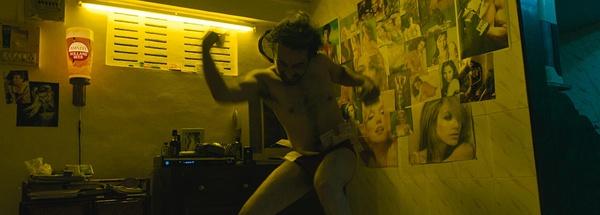The Indian film Ugly (2013), which is based on human trafficking, reminds viewers of the name of director Anurag Kashyap. The film's revelation of the darkness of human nature and the ugliness of society is very sharp, and the viewing process feels the powerful power of India's emerging filmmakers again and again.
The biological parents all want to take a on the missing daughter, and the relatives get the ransom to frantically dance the Straight Teachers to doubt whether they are still in the human world:

The police are perverted, ignorant, and brutal, but they work diligently and with a singular degree of credibility. In the face of such an ugly human being, if the police do not react accordingly and violently, they are bound to achieve nothing.
Kashyap's new film, The Bombay Serial Killer, can be seen in the title as another crime, film noir:
Raman Lagav killed 41 people in the 1960s and was India's notorious serial killer. The film takes him as its head and tells the story of the serial killer nicknamed Raman and his soulmate Lagav.
FBI psychoanalytics expert Rob Reisler dug into 36 serial killers and found that they were all born into troubled families, severely lacked the kinship that is essential for personality development, and that their parents were either mentally ill or criminal, alcoholic, or drug addicted. The closest person becomes the most terrible person.
In the beginning of man, there was no such thing as good or evil. The way the outside world treats him determines his character throughout his life. Not feeling the warmth of parents will make a person cold and ruthless, without pity. In domestic violence, husband and wife can still divorce, children can not survive without leaving the family, there is no escape, therefore, the most disgusting and hateful is to beat the child, it is simply a deliberate cultivation of serial killers, anti-social personality.
"Bombay Serial Killer" is the most successful and perverted killer created after "Old Nobody" (2007), which is creepy:
Both weapons have a bent head, like the scythe of death:
Even serial killers long for intimate relationships, or achieve the perverted desire for permanent possession through killing, or encounter "confidants" in the vast sea of people: the first person Raman kills is the "uncle" who often raped and abused him when he was a child; the addicted police officer just happened to find his uncle to buy drugs, smashed the old man who broke into the scene, destroyed the traces of the crime, and made Raman fall in love at first sight, "Raman found his Lajav".
Unforgettable childhood memories have become the biggest common denominator between the two. When Lagav smoked as a child, he was beaten by his father with a thick belt for a day, and when he became an adult, his father looked through his nostrils in public to see if he had taken drugs.
Brutal, dark films, with all sorts of bad tastes, reversals, and black humor. Inside and outside the house, there was a river of blood, and just after putting down the murder weapon, he actually picked up the bottle and wanted to feed the frightened baby:
The director's sense of proportion is very good, the murderer is indeed pitiful, and when the beast is strong, it is very cruel, hateful to the extreme, and it does not lose credibility.
Most dramatically, in August 2015, Raman made up his mind to turn himself in to the police: "Cleaning up God's aberration is the job of the police, in fact, I am doing the same work, except that you have a license to kill, wear a uniform, and technically speaking, everyone is the messenger of death." "Why did you turn yourself in?" I killed 9 people, and Death told me, right? You can't kill people because you don't have a place to sleep, and the prison guards eat and sleep, so you don't have to kill people. ”
burst! Want to imitate "The Policeman and the Hymn" and go to prison to eat and live in vain? The police beat Up Raman as a scoundrel and was locked up in an abandoned house. After several days and nights of not eating or drinking, he cried to passers-by and cried for help, which should have brought people to tears, and at the end he laughed and lost his teeth: "My throat is thirsty and on fire, there is only one cigarette, but damn it, there is no match to light..."
The sister has a happy little family from the difficulty, seeing that Raman is really pitiful, allowing him to bathe and eat, wanting to send him away as soon as possible, did not expect to lure the wolf into the house, and killed all three members of the sister's family without a word.
Raghav was angry with the father of a high-ranking official, beat up the Nigerian drug dealer, shot his men, and was fiercely counterattacked. You need to vent, dignity, people swallow their anger, obey your orders, you don't need dignity? This passage is concise and powerful, and the director's control and deep perception of human nature are all admirable.
Lagav continued to indulge in the sea of poison and partying, openly taking his female companion to his girlfriend's house, causing a fierce conflict; seeing that his girlfriend was seriously injured, he simply killed the killer and made her die. Raman, who witnessed all this, was overjoyed, and he did not look at the wrong person, so he turned himself in again:
And teased his soul mate: "You are the one who let me be free, but you are looking for freedom in a woman." I've done my job, and it's up to you now. ”
The ending is very scary and dramatic:
Video loading...